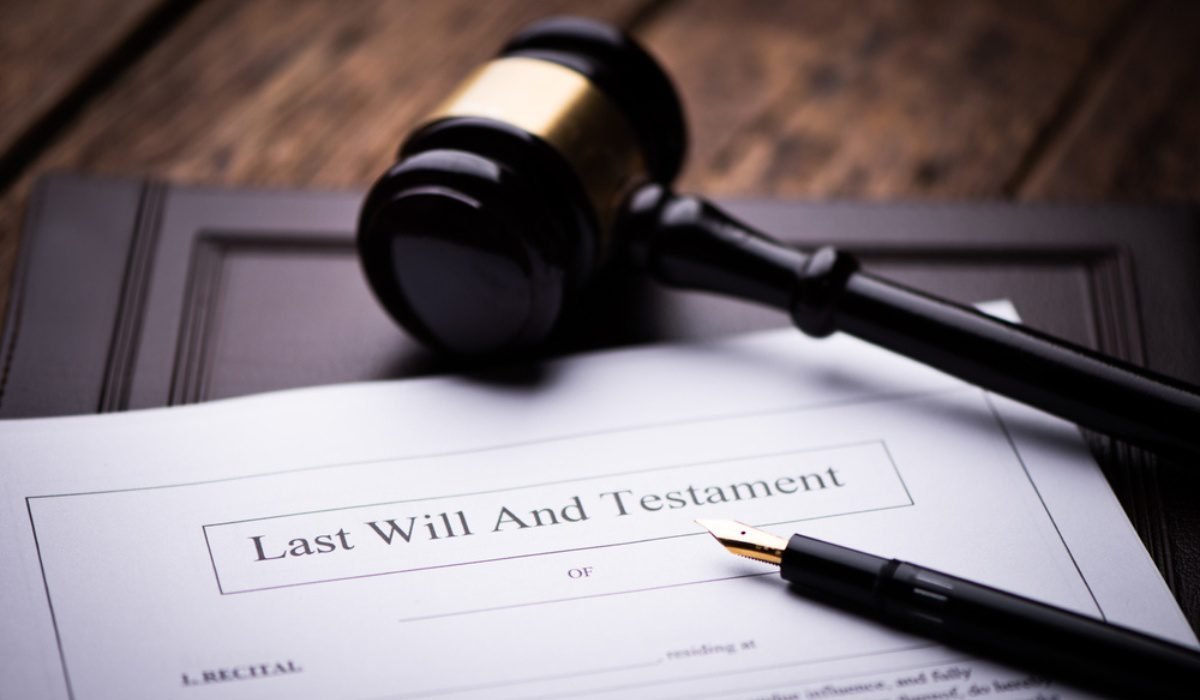A Will is an important document containing how a person wants his personal property and assets to be distributed after his death. According to the law, a Will Deed is a crucial document that grants the ownership of assets to the testator’s (the person who creates the will) heirs after the death of the testator. This document is useful as it also helps avoid legal disputes that may occur in future among the heirs. However, the testator can modify or cancel it anytime.
Check how to write a will for property
What is a Will Deed?
A Will Deed is a term framed by two terms – will and deed.
A will is defined under the Indian Succession Act, 1925, Section 2 (H) as the legal declaration of the intention of a testator regarding his/her property that he/she wants to be carried into effect after his/her death. That is, a will specifies the person who will inherit the assets and an executor who will manage the estate.
A deed is a legal document that transfers ownership of a specific asset, such as real estate, from one person (the grantor) to another person (the grantee).
A will comes into effect when the testator dies but deed immediately comes into effect once it is signed and registered.
Purpose of Will Deed
Writing a Will Deed is beneficial in many ways:
- Prevents legal disputes: It minimises chances of family disputes in future by clearing misunderstandings and disagreements, thus ensuring a smooth transfer of estate. It prevents possible encroachments, business disruptions, and other difficulties.
- Helps execute one’s wishes: Through a Will Deed, one can designate beneficiaries, allocate assets, and name guardians for minor children or dependants. The testator’s assets can be distributed as he wants.
- Ensures security: A Will Deed helps one document his/her wishes, which become legally binding. This protects one’s family and dependents.
- Appoint trusted individuals: Through the Will Deed, a person can choose a responsible person as an executor who will manage his/her estate and fulfil the terms of the will.
Types of Will Deed
A Will Deed can be created for different purposes:
- Warranty deed: It provides the strongest guarantee of title from the grantor, safeguarding the grantee from any hidden claims or defects.
- Quitclaim deed: It is used for transferring ownership without guarantees or warranties, especially when gifting property or settling minor discrepancies.
- Special warranty deed: It provides assurance against the grantor’s actions after the transfer but not against prior claims or defects.
Important facts about Will Deed
- A Will Deed is a legal instrument for succession and estate planning
- It comes into effect only after the testator’s death.
- A legally valid will must include the signatures of witnesses, clear intentions for inheritance and the capacity of the testator to execute the same
- The testator has the right to modify or revoke the will during his/her lifetime
- The will can be revoked with a fresh will, a written declaration, or the destruction of the will.
- After the testator’s demise, the will is enforced through a court application to obtain a letter of administration or probate. This is a certificate issued by the court to the executor. One must also pay court fees for the probate petition
Will Deed: Format
A Will Deed must contain the following:
- Personal details, such as names of grantor (the party transferring ownership) and grantee (the party receiving it).
- Date on which the ‘Declaration of Date’ was prepared.
- A statement that the person is not being pushed, or influenced in any way to draft the will, a proof of the free will.
- Details about the executor.
- Information related to assets and beneficiaries. It should include a detailed description of the property, such as address, legal boundaries, acreage, and any permanent fixtures.
- The type of transfer, such as purchase, gift, or inheritance
- Covenants may include restrictions or assurances regarding the property’s use or development.
- Signature must be given after mentioning the above details in the will.
- Witnesses’ signatures: A minimum of two witnesses are required to testify the will.
Will Draft: Format
[Full name]
I, [Full name], resident of [address], being of sound mind and disposing memory, do hereby declare this to be my last will and testament, revoking all prior wills and codicils made by me.
Article 1: Executor
I appoint [Full name of the executor], resident of [Executor’s Address], to be the executor of this will. If [Full name of the executor] is unable or unwilling to serve, I appoint [Full name of the alternate executor], resident of [alternate executor’s address], as the alternate executor.
Article 2: Debts and Expenses
I direct my executor to pay all my debts, funeral expenses, and the expenses of administering my estate as soon as practicable after my death.
Article 3: Distribution of assets
I give, devise, and bequeath my property and assets as follows:
To [Beneficiary 1’s full name], I bequeath [Description of property or assets].
To [Beneficiary 2’s full name], I bequeath [Description of property or assets].
Article 4: Guardianship (if applicable)
If [Minor Child(ren) Full Name(s)] is/are still minors at the time of my death, I appoint [Guardian’s Full Name] as their guardian. If [Guardian’s Full Name] is unable or unwilling to serve, I appoint [Alternate Guardian’s Full Name] as the alternate guardian.
Read: Property Tax Hyderabad – How to Pay Property Tax Online in Hyderabad (link missing)
Article 5: Residuary clause
I give, devise, and bequeath any remaining property or assets not otherwise mentioned in this will to [Residuary beneficiary’s full name].
Article 6: Miscellaneous Provisions
[Include any additional provisions or specific instructions, such as charitable bequests, specific funeral wishes, etc.]
IN WITNESS WHEREOF, I have executed and signed this will as of [Date].
[Your Full Name]
(Testator)
[City, State]
[Signature]
Will in property documentation
The term ‘will’ is more commonly used in legal context over ‘Will Deed’. In property-related matters, a will is used to declare how one wants his/her assets to be divided after his/her death. These assets include:
- Real estate such as houses, apartments, and land
- Personal property such as cars, furniture, jewellery, and collectables
- Financial assets, such as cash, bank accounts and investments
- Digital assets such as online accounts and cryptocurrency
How is a will beneficial in property matters?
- It prevents disputes and conflicts among legal heirs regarding share.
- It prevents intestacy, wherein if a person dies without a will, his assets will be distributed as per the state-specific laws. A will helps, but it may not be what you intended.
- Through a will, a person can leave specific gifts to his loved ones, which can include a family heirloom to a grandchild or a donation to the favourite charity.
- One can appoint a guardian to take care of his minor children after the person dies.
Clauses in Will Deed
A testator must include the following details in a will:
- Intention of the testator
- Manner of disposal of the property
- Revocation or alteration clauses that can be implemented in the lifetime of the testator
Updates in will
It is ideal to review and update the will periodically. This is beneficial if the person undergoes significant life changes, such as marriage, birth of children, or going through a divorce.
What is a registered Will Deed?
A registered will refers to a will officially recorded with the relevant government authority, generally the local registrar or the legal entity responsible for maintaining such records. Registering a will is a must as it gives additional authentication and evidentiary support, thus making the document secure and less prone to challenges.
How to register will deed?
- Preparing the Will: Create a will as per the format, declaring your wishes related to the distribution of assets, appointment of an executor, guardianship of minors (if applicable), etc.
- Visit a lawyer: Take the advice of a legal professional to ensure that the will document complies with the laws of the jurisdiction and has all the required elements.
- Visit the sub-registrar’s office: Visit the local sub-registrar’s office or the relevant government authority responsible for will registration. Complete the forms provided by the office.
- Witnesses and notarisation: Get the will attested by two or more witnesses who will the sign the document. The witnesses must not be beneficiaries or related parties. In some jurisdictions, notarisation of the will may be necessary.
- Submission and registration: Submit the signed and witnessed will to the registrar and pay the required fees. The document will be reviewed by the registrar. It will be officially recorded and registered if everything is in order.
- Obtain the registered will: Once registered, the registrar will issue a certified copy of the registered will. Keep this copy in a secure place.
- Inform relevant parties: Notify your executor, family members or relevant parties about the existence and location of the registered will.
What is the court fee for Will Deed?
The fees are calculated on the basis of the Ad Valorem system. Under this, a specific percentage of the value of the estate must be probated. Obtaining a probate is mandatory in cities, such as Kolkata, Mumbai, and Chennai.
The court fees applicable are Rs 75,000 in Mumbai and Rs 25,000 in Chennai. In Kolkata, the court fee is around 5.5% of the property value.
Will registration charges
In India, the cost of creating a will can range from Rs 10,000 to Rs 15,000. Additional charges for scanning and photocopies may be applicable. There are no government fees for registering a will.
Supreme Court Judgement on Will Deed
According to the act, a will is a formal statement by the testator about the distribution of his property in accordance with his intents and wishes, which would be implemented on his passing. Moreover, a codicil is a document added to, amended, or explained in connection with a will. It is a part of the will.
Gift Deed vs Will
| Aspect | Gift Deed | Will |
| Definition | A legal document transferring ownership of property from one person (donor) to another (donee) during the donor’s lifetime. | A legal document that defines the testator’s wishes regarding asset distribution after death. |
| Purpose | Applicable when transferring property ownership as a gift during the donor’s lifetime. | Applicable for distributing assets and appoint guardians after death. |
| Transfer of ownership | Takes place with immediate effect | Takes place only after the testator’s death. |
| Effective period | It comes into effect immediately upon execution and registration of the deed. | It becomes effective only upon the death of the testator. |
| Revocability | Irrevocable once the gift deed is executed. However, there may be exceptions and conditions. | Revocable during the testator’s lifetime, allowing them to make changes. |
| Execution requirements | It should specify the donor’s intention to gift, acceptance by the donee, and adherence to the legal formalities, including registration. Witnesses may be required. | It requires the testator to be of sound mind and comply with specific legal formalities. Witnesses are generally required. |
| Flexibility | Not easily amendable once it is executed. A new gift deed may be required for changes. | A will can be updated or amended by the testator as circumstances change. |
| Legal formalities | It has specific legal formalities, including registration with the relevant authorities. | Specific legal formalities differ based on the jurisdiction. Witnessing and notarisation are necessary. |
| Tax implications | Gift tax may be applicable. The donor may be responsible for paying any applicable taxes. | A will may be subject to inheritance or estate taxes upon the testator’s death. |
| Survivor’s rights | Once a gift deed is executed and registered, there are less challenges. | Surviving family members may challenge the will in certain circumstances. |
Housing.com News Viewpoint
Will deeds are essential for protecting inheritances and prevent future disputes. However, suitable legal advice should be sought when a will is executed. It is also essential to be aware of the relevant procedures and requirements for registering a will deed, which varies based on the jurisdiction. Thus, one should check with the local registrar’s office or a lawyer to understand the regulations.
FAQs
Who can create a Will Deed?
Any person of legal age (18 years) and sound mind can make a Will Deed, according to Section 59 of the 1925 Indian Succession Act.
Can a Will Deed be updated or revoked?
A person’s will can be updated or cancelled anytime in his lifetime, especially during major life events, such as marriage, birth of children or going through a divorce.
How to execute a Will Deed?
The testator or the individual who creates the will, is required to sign the instrument before witnesses to execute it. The witnesses are also required to sign the document. One should comply with the legal procedures during execution to validate the document.
Should a will be registered?
According to Section 18 of the 1908 Registration Act, registration of a will is optional. However, registering a wall is beneficial as it prevents future disputes among the legal heirs.
| Got any questions or point of view on our article? We would love to hear from you. Write to our Editor-in-Chief Jhumur Ghosh at jhumur.ghosh1@housing.com |
Harini is a content management professional with over 12 years of experience. She has contributed articles for various domains, including real estate, finance, health and travel insurance and e-governance. She has in-depth experience in writing well-researched articles on property trends, infrastructure, taxation, real estate projects and related topics. A Bachelor of Science with Honours in Physics, Harini prefers reading motivational books and keeping abreast of the latest developments in the real estate sector.












Comments 0